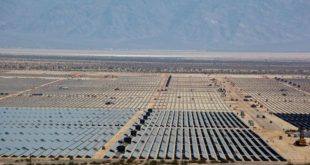Test results indicate that the company’s breakthrough design will produce conversion efficiency far in excess of current solar technology
Santa Barbara, CA – December 13, 2011 – Solar3D, Inc. (OTCBB: SLTD), the developer of a breakthrough 3-dimensional solar cell technology to maximize the conversion of sunlight into electricity, today announced the results of a simulated test of its new solar cell design that projects the conversion efficiency to be in excess of 25%. The test results indicate that the company’s innovative design will produce conversion efficiency far in excess of current solar technology.
“We are very encouraged by these test results,” said Jim Nelson, President and CEO of Solar3D. “We are now evaluating various methods of fabricating a prototype. If the results of our tests hold up in fabrication, as we expect, then our product’s performance will be among the very highest conversion efficiencies achieved by silicon solar cells.”
After completion of its prototype, the company’s management plans to seek a manufacturing partner that will participate in bringing its 3-dimensional solar cell to market. Likely manufacturing partners include some of the world’s largest semiconductor manufacturers.
Nelson continued, “These test results are very exciting and give us a great deal of confidence in the development path we have chosen. We think that our novel 3-dimensional solar cell has the potential to dramatically change the economics of solar power. A high efficiency solar cell manufactured with low cost silicon could result in the lowest cost per watt in the industry.”
“Increasing conversion efficiency and reducing manufacturing costs will ultimately drive solar to economic parity with the low cost alternatives,” said Nelson. “With the increased efficiency that comes from our new design, we take a giant step in that direction.”
 Alternative Energy HQ solar power for homes, wind energy, and bio fuel issues
Alternative Energy HQ solar power for homes, wind energy, and bio fuel issues





